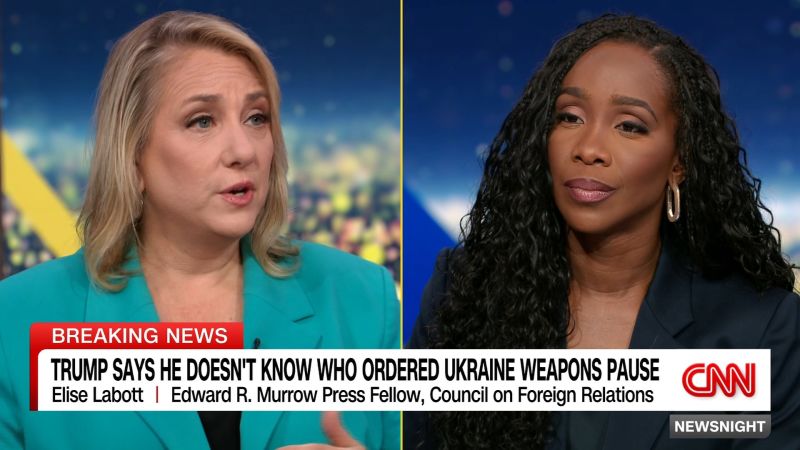Trump Announces New Military Aid to Ukraine Amid Cabinet Disputes

President Donald Trump has announced plans to send additional military aid to Ukraine, following a recent pause in shipments that has raised eyebrows within the administration. This announcement comes just weeks after the White House criticized the halt in military support, a decision reportedly made by Defense Secretary Pete Hegseth without prior communication to the President.
The new military assistance includes advanced weaponry aimed at bolstering Ukraine’s defense capabilities amid ongoing conflict. Trump stated he was unaware of the temporary suspension of shipments, indicating that there may be a disconnect within his cabinet regarding military strategy and foreign policy.
Internal Discontent Over Cabinet Decisions
Sources familiar with the matter have revealed to CNN that the decision to pause military shipments was made solely by Hegseth, further complicating the dynamics within the Trump administration. Critics have suggested that Trump needs to assert more control over his cabinet to prevent such unilateral decisions that could undermine his broader foreign policy objectives.
Panelists discussing the issue have emphasized the importance of clear communication within the administration, highlighting that confusion over military support can impact both international relations and operational effectiveness on the ground in Ukraine. The situation raises concerns about the coherence of the administration’s approach to foreign policy as it navigates complex geopolitical challenges.
Some experts argue that this internal discord could have serious implications for the United States’ standing in international affairs. With military aid to Ukraine being a critical aspect of U.S. support against aggression, any miscommunication can have far-reaching consequences.
Broader Implications for U.S. Foreign Policy
As the conflict in Ukraine continues, the need for a united front within the U.S. government becomes increasingly vital. Trump’s recent comments highlight the urgency for his administration to align its military strategies with diplomatic efforts. The administration’s ability to project a coherent message regarding support for Ukraine may play a significant role in shaping both domestic and international perceptions.
With Trump’s announcement of new aid, it remains to be seen how the administration will reconcile its internal differences while ensuring robust support for Ukraine. The developments in the coming weeks will be closely monitored by both political analysts and international observers, as they could signal shifts in U.S. foreign policy and its implications for global security dynamics.
In summary, President Trump’s renewed commitment to military aid for Ukraine underscores the complexities faced by his administration, particularly regarding cabinet cohesion and strategic communication. As the situation evolves, the administration’s ability to manage these internal challenges will be crucial in shaping its foreign policy landscape.





